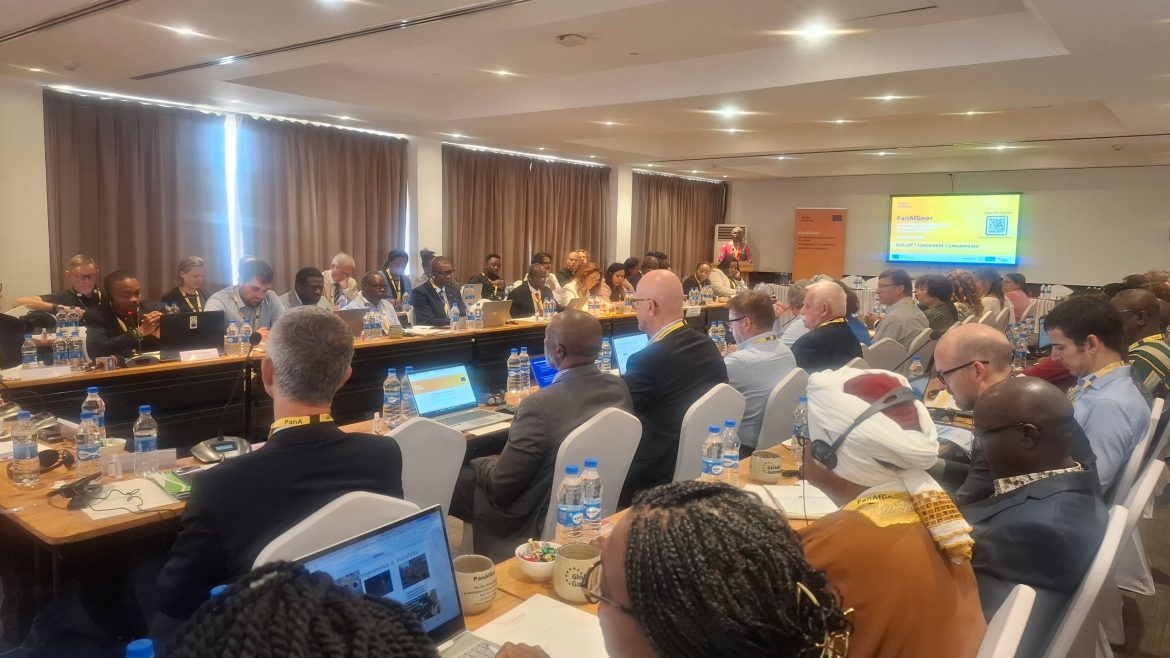The Pan African Geology Programme (PanAfGeo+) has trained more than 1,750 mining professionals from 54 African countries, playing a key role in helping to grow the mining sector across the continent.
This was revealed on June 24, 2025, at the PanAfGeo+ international conference currently ongoing in Dar es Salaam, Tanzania. The event brings together stakeholders from various African nations, Europe and global institutions to share ideas, strengthen partnerships, and discuss better ways to manage Africa’s mineral wealth.
Participants at the conference include geologists, government officials, and representatives from global organisations such as EuroGeo Surveys (EGS), the Organisation of African Geological Surveys (OAGS), and France’s Bureau de Recherches Géologiques et Minières (BRGM).
Speaking to journalists at the conference, the Deputy Permanent Secretary in Tanzania’s Ministry of Minerals, Msafiri Mbibo, said the event has helped Tanzania build strong international cooperation and technical skills.
Mbibo, speaking on behalf of the Minister of Minerals, Anthony Mavunde, noted that the training and knowledge shared at the conference have already started benefiting Tanzania’s mining sector, helping the government plan better and grow the economy.
According to Mbibo, “This conference has not only helped us build capacity, but it has opened the door for partnerships, technical support, and better management of our mineral resources. These are all very important for Tanzania’s growth.”
The President of the Organisation of African Geological Surveys, Dr. Rokhaya Samba, also spoke at the event. She explained that the next phase of the PanAfGeo+ project (2025–2029) will focus on digital transformation, modern geological mapping, and technology upgrades to help African countries understand and use their natural resources wisely.
Dr. Samba said, “Many African governments still lack updated data on their mineral wealth. Through modern tools and training, we can change that. With better geological mapping, countries can make smarter decisions when dealing with investors.”
She added that the coming years will also focus on helping countries design better mineral policies and strengthen the African Geological Surveys Organisation.
On his part, Jean-Claude Guilleneau, the PanAfGeo+ project coordinator from France’s Geological Survey, said the programme is a strong partnership between Africa and Europe. He confirmed that over 1,750 geologists and mining professionals have already received training in English, French, and Portuguese, which has helped expand the project’s reach.
Guilleneau also revealed that Tanzania is one of the seven African countries given special attention under the programme’s “country window” plan. This means Tanzania will benefit from more focused investments and training to help grow its mining industry, especially in East Africa.
Other countries receiving special attention include Rwanda, Zambia, and Uganda, which also presented their new national projects during the conference.
Panel discussions at the conference have covered a wide range of issues including skills development, resource governance, and the role of mining in driving Africa’s development.
The PanAfGeo project was first launched in 2016 as a partnership between the African Union (AU) and the European Union (EU). It is partly funded by the European Commission and aims to build up the skills and knowledge of African geoscientists so they can help their countries benefit from mineral wealth in a responsible and sustainable way.
With the new project phase about to begin, African countries are expected to receive even more support in areas like geological data management, training, critical minerals development, and policy advice.
Stakeholders believe that with proper investment in people, tools, and governance, Africa can become a global leader in sustainable mineral development.
